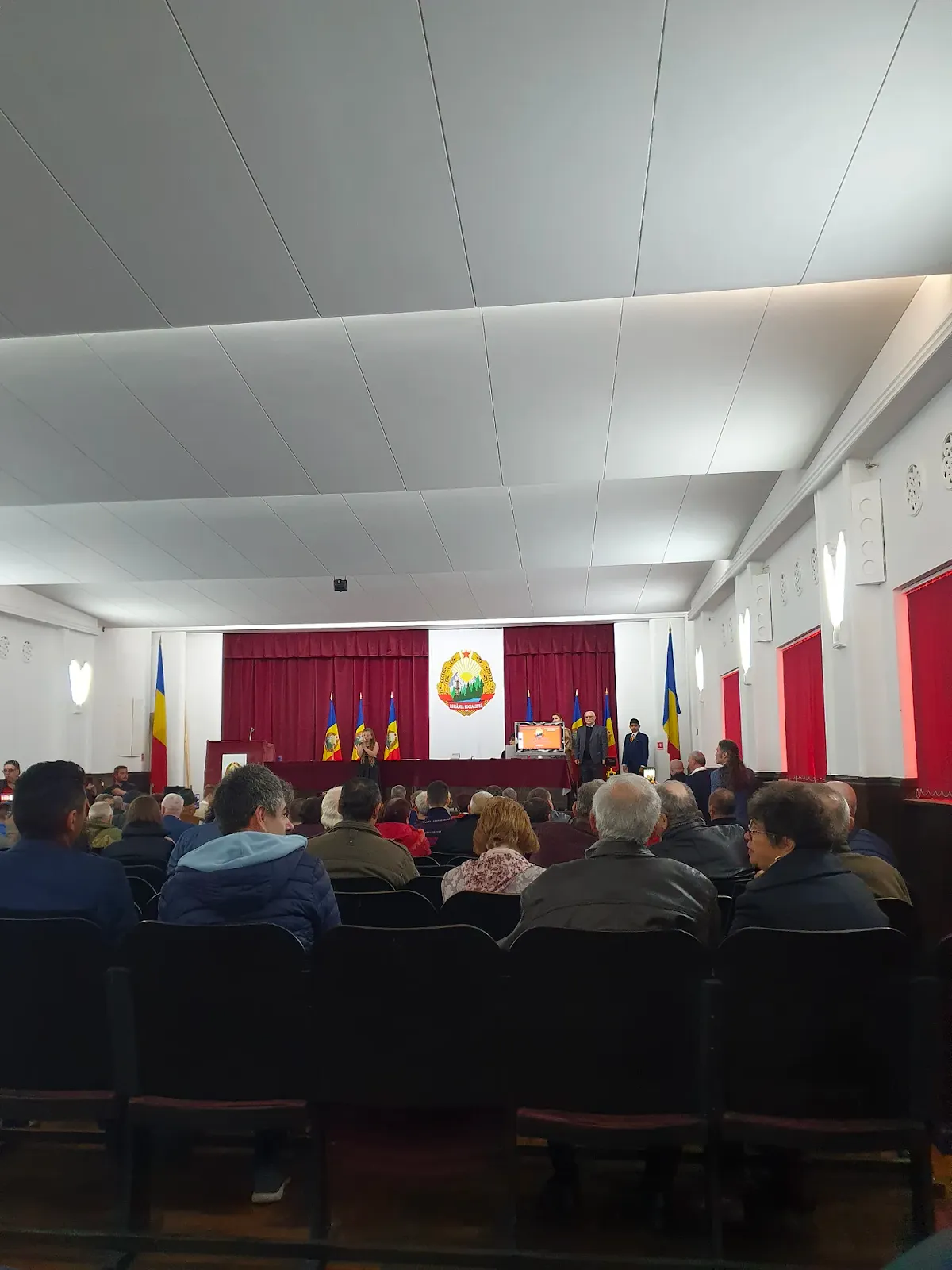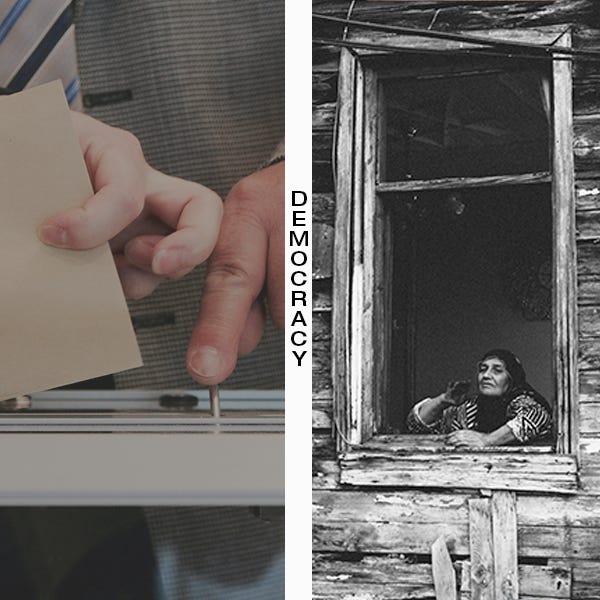Vasile Ernu speaks with Victoria Stoiciu about the new serfdom and the guaranteed minimum income: ”In our country the fight against poverty has turned into a fight against the poor”
“On Wednesday 20 June 2018, members of the Romanian parliament approved a legislative project which liquidates the right to a guaranteed minimum income in the case where even one offer of work is rejected by an unemployed citizen. The decision was taken with 274 votes in favour, 4 against and 2 abstentions”, reports the national press agency, Agerpres. In my view, there is no one any more in the Romanian parliament who represents the interests of the poor, who make up more than 40% of the citizens of this country. They are abandoned. We fight not with poverty, which is the gravest problem of Romania, but with the poor. The fight against the poor unites the Social Democratic Party (PSD) and the Alliance of Liberals and Democrats (ALDE) [the two governing parties – translator’s note], the National Liberal Party, the Democratic Union of Hungarians in Romania (UDMR), the Save Romania Union (USR) and others. They have taken an important step towards a new serfdom.
On the occasion of this parliamentary vote I talked with Victoria Stoiciu, who is very familiar with the sphere of social legislation and the problem of poverty. She is the programme director of the Friedrich Ebert Foundation Romania. She is also the national correspondent for Romania in Eurofound, the European agency conducting surveys on quality of life in the EU.
Before speaking about this new law, please tell us what “social protection” means, who has the right to receive it and where Romania stands in the rankings on social protection. How much is spent in our country in this sphere?
Even though it is claimed that we have a very bloated social state, the truth is that Romania spends only 15% of its GDP on social protection, while the mean average for the EU is 28%. Social protection has two components: social security payments and social assistance. The social security schemes function on the basis of personal contributions and “insure” the one who pays against various risks (getting old, illness, unemployment). Social assistance is accorded to all categories of citizens who are considered vulnerable, and is not related to their payment of social contributions.
Pensions, unemployment benefits, health insurance, child benefits are in the first category. The social assistance payments (among which is the guaranteed minimum income) and social services are in the second category. The law which was voted on last week refers to those who receive social assistance, and are known by the pejorative expression “socially assisted people”. Romania spends only 0.2% of its GDP on the fight against social exclusion (and a large part of this money goes on social assistance), while the mean average for the EU is 0.8%. This means that Romania pays out 0.4% of its budget on this fight, while the average share of the budget spent on it in the EU is 1.8%.
The best known form of social assistance is the guaranteed minimum income. It is also the one which is most under attack. It represents a sum of money which is received by very poor people, whose income is below a certain threshold. This threshold is 142 lei (30.43 euro) per person. If somebody has 0 lei personal income, he will receive 142 lei from the state. But if he has 50 lei (10.71 euro) personal income, because he received a gift, he will receive only 92 lei (19.72 euro) as a guaranteed minimum income. This sum is the difference between 50 lei and the legally-stipulated threshold of 142 lei.
This threshold grows to 255 lei (54.65 euro) for a two-member family and amounts to 527 lei (112.95 euro) for a family of five people. Each additional member of the family above the fifth one receives 36.5 lei (7.82 euro). We are talking here about modest, even abject sums of money. Any man who feels the need to fill in the social assistance form realises that he is living in great poverty. The assistance is given only under certain conditions – the citizen must be included in the unemployment registry, to seek work, and to do community service work.
How do you think the negative connotation of the notion “social assisted people” and this sincere hatred towards the poor emerged?
In our country the fight against poverty has transformed itself into a fight against the poor. Instead of trying to reduce poverty, we are trying to liquidate the poor by any means, as we are guided by the false idea that if we make the conditions for the allocation of social assistance more difficult, poverty will either disappear or the problem will be resolved by itself. This fight against the poor started in the times of President Traian Băsescu (2004-2014), when the new vocabulary of ”socially assisted”, “work-averse”, etc. was invented. The goal was to find a scapegoat under the burden of austerity. [In the conditions of the world economic crisis in 2009, Romania took loans of more than 20 billion dollars from the IMF, the World Bank and other institutions, in order to be able to pay the pensions of its population. As a consequence, austerity was introduced, salaries in the state sector were lowered, and poverty spread – translator’s note.]
The crisis has passed. Austerity is over. But the hatred against the poor has remained in force together with the wrong idea that Romania has many socially assisted people. This is not true at all. Our data shows that in March this year there were 216,000 households or individuals who were receiving social assistance. That is altogether 500,000 people. Of them, 325,000 were able to work. Others were children, adults, people who were ill. Why, if these people are few in number and little is spent on them, are they considered to be an obstacle to others?
The goals of the fight against the poor are first of all ideological and are rooted in the neoliberal idea of a super-reduced state, which is not obliged to provide anything to anyone as far as social rights are concerned. There is another goal, which is both ideological and practical – the pauperisation of human resources in the sense of their transformation at any price into available labour, into not just any kind of labour, but cheap labour. At this moment Romania is facing a labour shortage, because of low salaries which are not competitive with those in the EU. Employers can’t find employees for their vacancies. Employers are trying to force the available reserves of human resources into work at maximally reduced costs.
There is a myth about how poverty is created by being “work-averse” or more simply – by laziness. What are the basic causes of poverty?
The concept of being ”work-averse” doesn’t exist in the Romanian language. This is a neologism which has been created in order to serve the Orwellian rhetoric of power, which is directed against the social state. Yes, this is a very popular myth – that people are poor, because they don’t work and most of all, because they refuse to work. I have to make two observations here. The first is that Romania has the highest percentage of working poor in the EU (19%). This is clear proof that work is not the only solution which liberates people from poverty. The second observation is that usually in the areas where there are the greatest number of guaranteed minimum income beneficiaries, there are the fewest jobs and the most limited economic possibilities. In most cases people don’t work not because they are lazy, as it is claimed, but because they don’t have anywhere to work. For example, in Bucharest – the city with the greatest number of jobs, there are only 200 people receiving the guaranteed minimum income. Things are just the opposite in poor regions such as Vaslui, Teleorman and Mehedinţi. There are few jobs there.
The other myth, used by the media mainstream in order to legitimise the new law, is how ”the assisted” don’t want to work. We see reports of how “job providers”, who are looking for employees, beg “the assisted” to come and work, but “the assisted” refuse. What is the reason behind this “refusal”? By the way, only 0.7% of those who receive the guaranteed minimum income refuse to participate. What kind of refusal are we then talking about?
For sure, the media discourse about the employer who comes in a village and no one accepts his work, is very popular. What has never been discussed is what wages and what conditions of work this employer is offering, how much the food and transport to the work place cost and how much money remains in the pocket of the potential employee at the end of the month. It is not discussed with whom he or she would leave his/her small children, whether there is a kindergarten in the village and what the cost of living is there. It is easy to shout: “Boo, slacker!”, as you ignore the complexity of the situation. The media discourse which I refer to is propaganda. It is based on extreme simplification.
In my view it is natural not to agree to work for any wage and in any situation. The right to decent employment was won at the cost of much blood. The resistance against employers is good for Romania and its development, because it pressures them to raise wages to a decent level. I believe that those who refuse to work as slaves for abject wages do a favour to all of us who provide for ourselves through work!
You have recently presented data showing the development of the correlation between the guaranteed minimum income and the minimum wage. What does this evolution show?
In short, it shows that the standard of living of those who use social assistance is growing worse and worse, and the sums of money which they receive are growing smaller and smaller.
In 1995 when social assistance was introduced for the first time, its threshold was 81,000 old lei for a family of two, while the gross minimum wage was 75,000 old lei. At that moment in the past, social assistance was 108% of the gross minimum wage! In 2001 when the law on social assistance was modified, the guaranteed minimum income for a two-member family was 1,134,000 old lei, while the gross minimum wage was 1,000,000 old lei. Then the value of the guaranteed minimum income was 113% of the minimum wage. In 2018 this correlation has plunged to 13%. Today, the guaranteed minimum income for a two-member household is 255 lei (54.65 euro) and the gross minimum wage amounts to 1900 lei (407 euro).
Such a development can be observed with regard to the net mean average wage and social assistance (guaranteed minimum income). In 1995 social assistance for two people was 35% of the net average wage. In 2001 it was 36%, and in 2018 it has reached 10%. This means that social assistance is not updated in accordance with wage increases, economic growth and inflation. This social assistance is an ever more miserable sum of money.
Now, let’s have a look at the law which led to our interview. What is the substance of this law? What are its goals?
Its goal is very clear – to force those who are beneficiaries of social assistance to participate in the labour market at any price, to make them into cheap, flexible and dependent manpower. There are many changes in the law, but there are two which are the most significant ones. First, the right to social assistance ceases if the recipient refuses even one job he/she is offered. Even one! Before these changes, they could refuse up to three jobs. From now on it no longer matters whether you find the pay, the distance to the work place, the work schedule good. You either accept, or “perish”. The second rule in my view is graver. It is the obligation of those who receive social assistance not to refuse casual work.
According to the law, things will happen this way: a firm belonging to the mayor’s friend, or the mayor’s wealthy neighbour, or his cousin from the neighbouring village will come and say to the mayor: “We need people to dig, to mow various plots of land”. If so far these people were offered 50 to 100 lei (10.71 to 21.43 euro) for a day’s work, after this law comes into effect, I expect that payment will be drastically reduced, because the workers will have no power to negotiate. The law stipulates that they can negotiate payment freely, but how can they do that when they have no labour rights and can’t refuse? “You don’t like working for 20 lei (4.28 euro)? No problem, go home, the mayor will cut your social assistance.”
What might the consequences of this law be?
It will make a few hundred thousand people who receive social assistance into serfs. Wages will be reduced. In the future we will become a European country with African wages. Something like “the Bangladesh of Europe”.
I am expecting a “perverse” effect of this law, which I haven’t heard being discussed by anyone. The law says clearly: the threshold for the guaranteed minimum income for a single man is 142 lei (30.44 euro). If you manage to gain 145 lei (31.07 euro) from other sources – 3 lei (0.63 euro) more, then you don’t qualify for the guaranteed minimum income.
Let’s imagine that Uncle Ion receives the guaranteed minimum income, but the mayor sends him to work during the day to someone from the village. And let’s say Uncle Ion receives 200 lei (42.86 euro) for one week. This means that the man will automatically lose his right to the minimum income!
In other words, whether he accepts or refuses to do casual work, he will end up without social assistance. But 200 lei is more than 142, someone will say. It is true. But there is no guarantee that Uncle Ion will always make 200 lei, because temporary work is usually seasonal. Also, casual work doesn’t come with health insurance. When he loses his access to the guaranteed minimum income, Uncle Ion will lose his concomitant right to health insurance. He can pay for it – 190 lei (40.72 euro) every month. So, at the end of the day, Uncle Ion will be left with only 10 lei (2.14 euro) for food and living out of the 200 lei he made by working.
Why do you think such a law has been voted for unanimously by all the parties (with the exception of four deputies)? Who represents the interests of the poor – over 40% of the population of this country – in parliament?
There is no difference between the parties, when we talk about the approach towards the poor. All the parties, with no difference between them, serve Capital and the employers. But if Capital needs cheap manpower, the state activates itself and takes measures. It votes for this law, votes for the law on internships, which allows employers to use manpower at 50% of the minimum wage and explains that it will support employers who give jobs to the unemployed or socially assisted people, with 500 euro per month.
It is Capital that is really socially assisted in Romania and not the poor who live on social assistance. Not a single parliamentary party represents Romanians who live in poverty.
Our research shows that the poor vote less and less. The number of voting poor gets lower with every single election. This shows once again that political intelligence is not a privilege of people with a doctor’s degree or with a university education.












[…] This article was published on 25 June 2018 on the site ”The Barricade”. […]